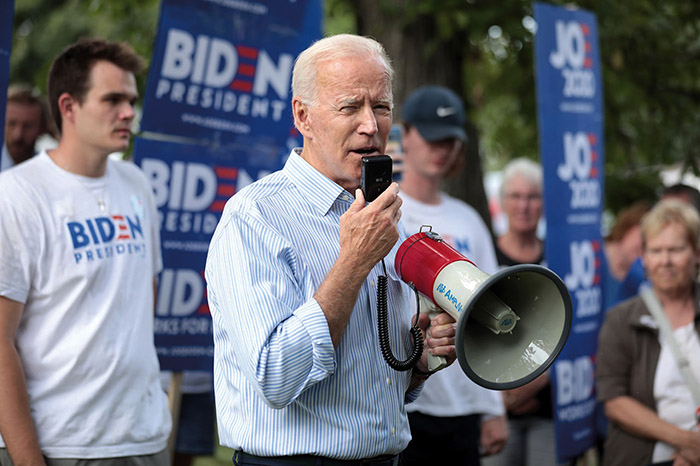From the beginning, the Biden administration has been opaque and mysterious regarding its stance on cannabis. This has made it difficult, to say the least, for advocates of various liberalizing bills that have made their way into Congress, especially ones that would legalize weed for adult use.
With the Republicans still holding sway despite their minority status (thanks to the filibuster, which the Democrats are terrified of eliminating), legalization seems at the moment like a dim hope. If the GOP takes one or both houses of Congress in November, the cause (and a lot of other causes) will be set back even more.
For weed advocates, all of this makes the Biden administration’s reluctance to push for legalization, or at least to do more to facilitate it, that much more frustrating. It could still be years before federal legalization happens, even as states across the country continue to legalize for either medical or recreational use. Pot is now legal in one form or another in 39 states and counting. Its continued federal illegality has stymied the struggling industry in countless ways: Companies find it hard to get banking services, interstate commerce is banned, businesses can’t deduct expenses on their federal taxes, and on and on.
Biden himself was a stalwart drug warrior for most of his career. He came to national prominence in the 1980s, when America was in the midst of a particularly severe moral panic about drug use (even as levels of weed consumption and the use of drugs like cocaine were hitting new peaks). No politician back then could endorse the idea of pot legalization any more than he or she could endorse gay marriage or flag-burning, and hope to stay in office. Still, Biden was more vocal than most—and certainly more so than most Democrats—about the “evils” of weed.
While he appeared to soften somewhat during his campaign, he is still clearly highly skeptical, at best, toward weed. One theory is that his son, Hunter Biden’s, former struggles with alcohol and drug addiction made the president even more wary of explicitly endorsing legal weed than he already had been. The fact that cannabis is sometimes effective in relieving those kinds of problems seems dubious to a lot of people of Biden’s advanced age. The Hunter theory seems a bit overdetermined, though it might have some merit. But the fact is that this is largely a generational issue, and Biden was a drug warrior long before his kids were old enough to smoke a joint.
Where he has made a kind of “progress” is on the issue of decriminalization, which he says he supports, and on expunging the criminal records of people convicted of federal cannabis crimes.
But as with everything related to cannabis, Biden’s “progress” here is almost entirely rhetorical. He campaigned on decriminalization and particularly on expungement, but after taking office, he had nothing to say about it until last week. In response to a reporter’s question, he declared that he’s “working on” the issue. No details were forthcoming, but it was still taken as a sign that perhaps he’s finally ready to act.
That might be thanks in part to a letter to sent to Biden earlier this month by six senators, including Elizabeth Warren (MA), Cory Booker (NJ), Bernie Sanders (VT), Ron Wyden (OR), Ed Markey (MA) and Kirsten Gillibrand (NY), decrying the “failure” of the Biden administration and the Justice Department to deschedule cannabis (that is, decriminalize it) or to do anything at all on expungement.
The only action the administration has taken so far has been to grant clemency in April to a few dozen people, only a few of whom were convicted of cannabis offenses. The administration’s and DOJ’s slow and feckless response to an earlier, similar plea from the senators was, they said, “extraordinarily disappointing.” Cannabis advocates, with good reason, have applied the same description to the administration’s overall treatment of their pet issue.
Originally posted on EastBayExpress.com








